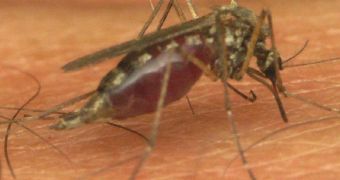Just a small inaudible buzz and that's all, you can get rid of mosquitoes.
It sounds good, isn't it?
No smelling chemicals, no itchy ointments...
That's what electronic mosquito repellents are for: emitting ultrasounds mimicking the beating of male mosquito wings.
The devices are employed indoors and outdoors and must repel blood thirsty mosquito females within a range of 2.5 m (8 ft), as the females mate just once in their lives.
That's why EMRs are marketed as a weapon against malaria because, this way, malaria-transmitting mosquitoes could not bite. But some researches showed that female mosquitoes have a very low sound sensitivity.
And a new Cochrane systematic review made on 10 field (10-field) researches made in North America, Russia and Africa reveals that EMRs are completely ineffective.
"EMRs should not be manufactured, advertised or used for mosquito bite and malaria prevention, as they do not do so. All the researches found that there was no difference in the number of mosquitoes that landed on the bare body parts of the human subjects with or without an EMR. Hence, these devices do not work in repelling mosquitoes. As EMRs do not repel mosquitoes, they would not prevent malaria", said lead author Dr. Ali Enayati, lecturer in medical entomology at the Mazandaran University of Medical Sciences in Sari, Iran.
Malaria kills 1-3 million persons every year, mainly children in sub-Saharan Africa, but about 400 million people are infected, with severe health effects.
The vector of this protozoa parasite is the female Anopheles mosquito and, as in the case of any protozoa, vaccines or antibiotics are useless.
The authors are worried by the extensive use of the EMRs. "This is a concern because it is likely to lead to consumers not using other protective methods that are proven to work."
Effective mosquito repellents are pills, ointments, lotions and sprays, insecticide-treated or untreated bed nets. "There is no evidence that electronic devices prevent malaria and many other available options should be used. For example, insecticide-soaked bed nets kill female mosquitoes on contact or repel them from the house during the biting hours, from dusk to dawn", said Dr. Joel Breman, a senior scientific advisor at the Fogarty International Center of the National Institutes of Health, not involved in the research.

 14 DAY TRIAL //
14 DAY TRIAL //